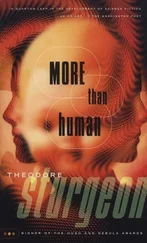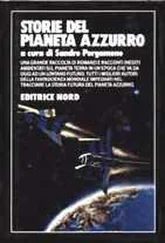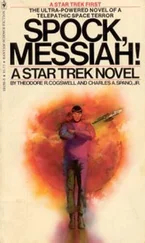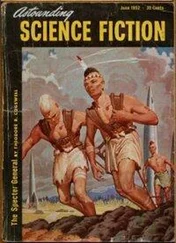“Well, because … because, well, it’s all quite odd. You’re not from around here, are you?”
“What if I’m not?”
“You’re not a teacher either.”
“No.” She looked steadily at him. “Do you always interrogate your dancing partners like this?”
“I’m terribly sorry. It was impolite of me. What’s your name?”
“Zena. And yours?”
Kulik was surprised she did not give her patronymic, and even more surprised that she spoke in Ukrainian. “My name is Ivan, Ivan Kulik … You look familiar to me. I’ve seen you someplace before.”
She was amused. “Is that what you say to all the girls?”
A Strauss waltz began. The floor filled with dancers, young and full of energy. Everyone was intoxicated, carried away by the significance of the night. They were not only celebrating the coming of the New Year, but the coming of a new era. History was in the making.
When at last the music slowed, Zena became surprisingly chatty, even affable, going on about the band, the music, the dancers, but when she mentioned the colorful decorations and the pictures of Stalin on the walls, their eyes locked. It seemed to Kulik that something odd had passed between them, as if they both harbored the same dark secret. He longed to ask questions, to speak, to exchange confidences, but did not dare. She looked away from him and seemed to become distant. Why, Kulik asked himself, had this young woman gone into the offices of the Oblispolkom ? Could she possibly be a Soviet spy or an agent of some sort? He said casually, “On our way here we passed the Oblispolkom . Surely you know where that is? It used to be Father Mendiuk’s house. One day party officials came and booted him out into the streets. Now he’s no more than a beggar.”
Zena broke free of his embrace and said quickly, “It was very nice to meet you, Ivan Kulik. Thank you for the dance. I’d better be off and find Yeliseyenko before he thinks I’ve abandoned him. Good-bye.”
Before Kulik could say another word, she was gone. Why, he asked himself, had he gone and opened his big mouth? Why had he tried to corner her and in such an obvious way? Now he was left alone. He decided to return to the bar for another drink. As he was about to place his order, Dounia Avdeevna emerged from the crowd.
“Yoo hoo! Comrade Ivan!” she called. “So, we meet again … You’re all alone? My, my! … First a blonde, then a brunette. Quite the Casanova. But how sad, now you’re all alone, you poor dear thing.” She lowered her voice. “May I give you a word of advice? Never trust beautiful women. You’re better off looking for one with stamina and character, not unlike myself.”
Kulik smiled. “What’s become of your sailor?”
“Sailors! They’re a reckless bunch. I’m interested now in the more stable professions like engineering, medicine, teaching …” She brushed up against him, “Yes, teachers in particular are very dependable.”
Kulik stumbled back against the wall. He wanted to get out of there. Dounia Avdeevna, offended, threw herself back into the crowd.
Sergei came by, looking irritated. “Marusia just up and left. I don’t know what came over her, but something obviously set her off. I offered to walk her home, but she wouldn’t have it. She’s so unpredictable and headstrong. What’ll we do now?”
They were in no mood to participate in the festivities. Outside, the snow was now coming down heavily, so heavily that almost everything became invisible to them — the lamp posts, the buildings, the parked trucks. It was colder than ever. Kulik pulled his cap down over his ears and Sergei fumbled in his pockets for his gloves. They could hear the distant sound of cheers and applause. “Five, four, three, two, one! Happy New Year!”
They walked on, welcoming the New Year in silence. Nineteen-forty had begun.
For almost an entire week, chaos reigned in the Bohdanovich household. It began when Efrosinia snatched the money given by Kulik and Sergei from her husband’s pocket and placed it under lock and key in the pantry. She had already decided what she was going to do with it: she was not only going to purchase the train ticket for him, but she was even going to take him to the station and place him in his seat.
All the while Valentyn was at a complete loss. He loved his son dearly and wanted to see him come home as much as his wife did, but he felt the demands being made upon him were far too great. True, initially he had agreed to go to Lvov, but was it really such a good idea? After all, he was old, nearing seventy, and he had no business traveling on trains, especially in these troubled times. He could have a heart attack or get mugged or something worse. And what about his arthritis? He racked his brain to try and find a way out, but there didn’t appear to be one. And if he were to simply refuse to go, Efrosinia would go after him with her wooden spoon, something she did all too often. As much as he hated to admit it, everything was working against him.
In the midst of all this confusion, Marusia fell ill. When she returned from the New Year’s Eve dance slightly after midnight, she collapsed on her bed with a throbbing headache. At dawn she woke with a temperature and by mid-afternoon it was higher. Efrosinia and Valentyn dropped all preparations for the trip to Lvov and turned their attention to their daughter. Although Valentyn was deeply worried about her, he was privately relieved that he could postpone his trip to Lvov, at least until she recovered.
Early one evening Efrosinia appeared at her daughter’s bedside with a towel draped over her arm, holding a basin filled with cold water. The room was quiet; strips of light seeping in through the slats in the closed shutters cast faint shadows on the wall. A cold draft from beneath the floorboards chilled the air. With her eyes half open, her hair strewn over her pillow, Marusia lay buried under her eiderdown, unaware of her mother’s presence. Stretching her arms languidly over her head, she took a deep breath, sighed, and rolled over onto her side.
Efrosinia laid a compress on her daughter’s forehead and looked reprovingly at her. “Well, Marusia, you went to the dance and now look what’s happened to you. You’re white as a ghost.” Then, angrily, “They took you there but they couldn’t bother to bring you back. Moujiks ! Just let them try and set foot in my house again!”
“Mother, keep your voice down, please.” The girl massaged her temples with the tips of her fingers to alleviate the pain in her head.
“Don’t you ‘mother’ me. Of course I’m your mother, I’m not your stepmother. If those two come anywhere near this house again, I’ll chase them off like a pair of dogs. And that one, what’s his name, Kulik? To think he even managed to win the old man over!”
At that moment Valentyn came into the room. Stroking his beard, he whispered in his wife’s ear, “Let her rest. How do you expect her to recover if you never leave her alone?” He took the towel and basin from her hands, and setting them on the night table, pulled her out of the room.
Downstairs, in the hallway, he fidgeted, feeling compelled to approach her about something. Efrosinia watched him intently, guessing his intention. And just as she had expected, at last he came out with it.
“Efrosinia, let’s be sensible about all this. Somehow it just doesn’t seem right. It’s about my trip to Lvov. How am I supposed to travel back home with Lonia on a crowded train? He might need medical attention. He’ll be extremely uncomfortable and his condition might even get worse. And what if there are no seats available? Furthermore, the doctors might even refuse to discharge him from the hospital.”
Читать дальше












